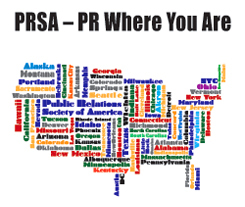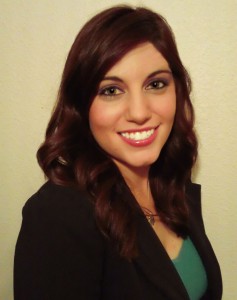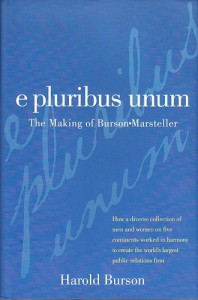You know something that’s strange? Oh, come on—take a guess. Here are a few clues…
I’m not talking about any world records, pickles accompanied by mustard (yuck) or the way Shakira’s hips don’t lie (anyone else addicted to the Voice this season?).
All out of guesses? I’ll tell you. It’s strange how closely the relationships we have with our clients and our supervisors mimic each other. Shocker when you actually think about it, right? If your relationship with your boss is not like the one you have with your client, start making steps to morph it.
Your boss is your client. She/he holds a certain power over your career, much like a client has a certain power in your agency’s ability to sign your paychecks. If you’re performing at the highest level, always achieving your professional goals and you communicate it to your boss, she/he will advocate for you. In the same fashion as your boss, if you’re surpassing the goals you set with your client, you’ll continue to see positive results such as business growth and new business referrals.
Treating your boss (and colleagues) like a client shows that you respect them— if you show the same level of detail and care towards your boss as your client, she/he is bound to have a strengthened level of trust and respect for you as well. From my first internship to my current career, I follow a few simple rules when working with teams and/or clients: ask smart questions, always know your key messages before you begin presenting an analysis, and have back up ammunition such as supporting details, resources or next steps for those who questions. Not only will the above rules show your boss you mean business, it will make you look ready for the next step in your career.
As young professionals, we have to embrace treating our teams like clients. The continuous effort to treat your teams like clients will force you to perform at the highest level at all times (you won’t even need a Starbucks run). Over time, you’ll begin to realize that your “default” internal mode will turn into your “client” external mode, and you’ll begin to see a natural upwards progression in your performance.
As I’m been jabbering away about treating your boss and teams like your client, I bet you’re wondering, ‘how am I supposed to act when your boss acts like the client from you-know-where?’ Simple. Treat them like a client.
Every moment is a learning moment. If you have an extremely difficult manager—embrace it and still treat her/him like the client! You’ll be more prepared in the future to deal with harsh criticisms and the infamous indirect feedback. Practice makes perfect, start by having an open conversation with your boss by stating your expectations and goals you want to meet, and more importantly, learn how you can make their lives easier. Is she/he difficult because they’re terrible at responding to emails? Try giving your boss a call. Is it because she/he will tell you everything she/he doesn’t want, but not what they actually want? Think two steps ahead. Always be cognizant of what she/he already provided feedback on, and anticipate the next piece of feedback. Go ahead and make the adjustments and provide reasoning to why you made the adjustments.
Now tell me about your experiences! Have you ever considered your boss as a client? How do you handle a difficult boss vs. a difficult client?
 Pat Messenger is a Client Staff Assistant at Burson-Marsteller in Chicago. Pat is a member of PRSA Chicago and the Young Professional Network. Tweet at him @PatMessenger, or email him Patrick.Messenger@BM.com.
Pat Messenger is a Client Staff Assistant at Burson-Marsteller in Chicago. Pat is a member of PRSA Chicago and the Young Professional Network. Tweet at him @PatMessenger, or email him Patrick.Messenger@BM.com.





 In the communications industry, events are happening all the time. So how do you know which one is best for you? Whether your job is in social media, public relations, marketing or a combination of the fields, these 10 events can add value to your current strategies.
In the communications industry, events are happening all the time. So how do you know which one is best for you? Whether your job is in social media, public relations, marketing or a combination of the fields, these 10 events can add value to your current strategies.



